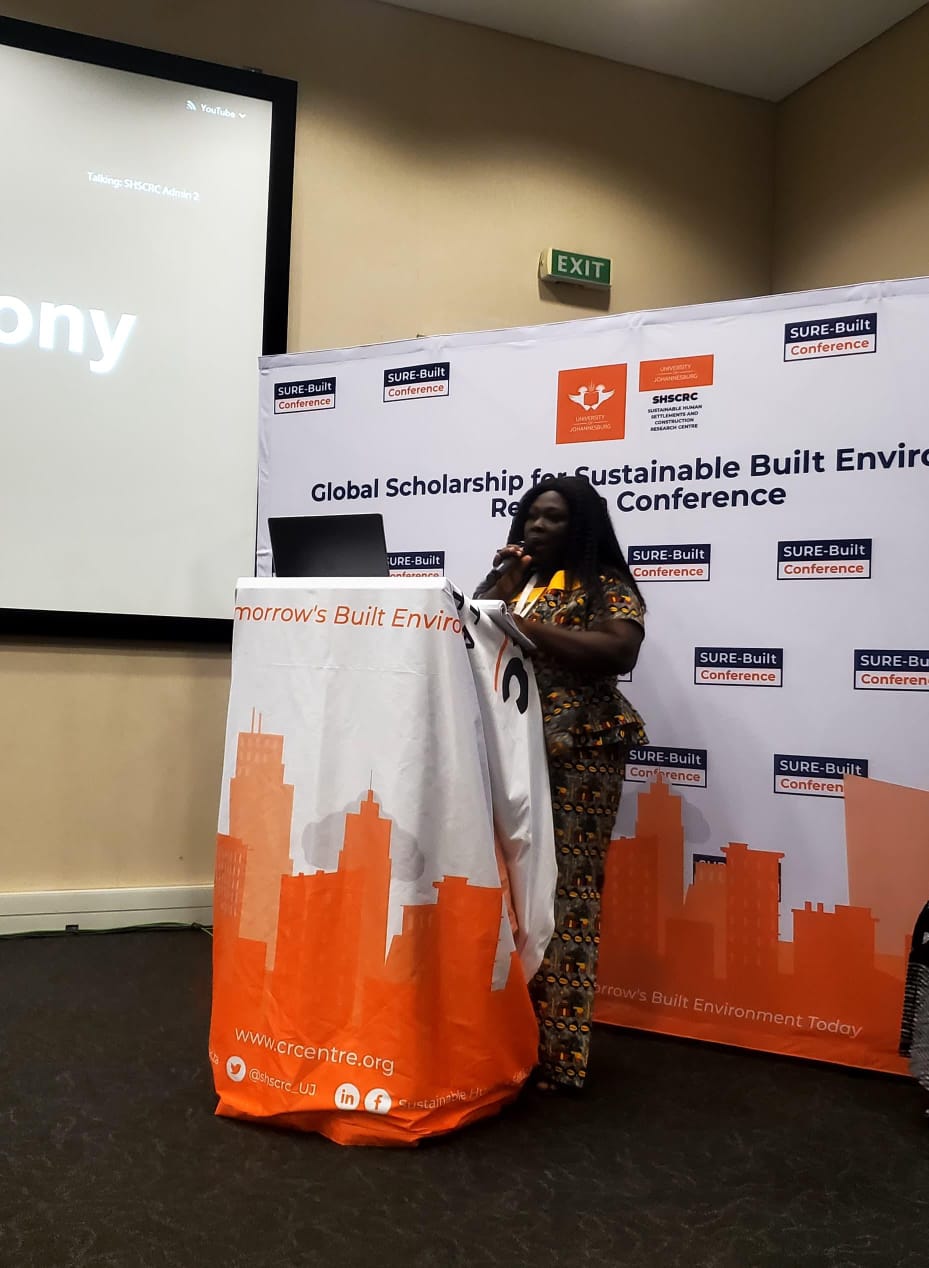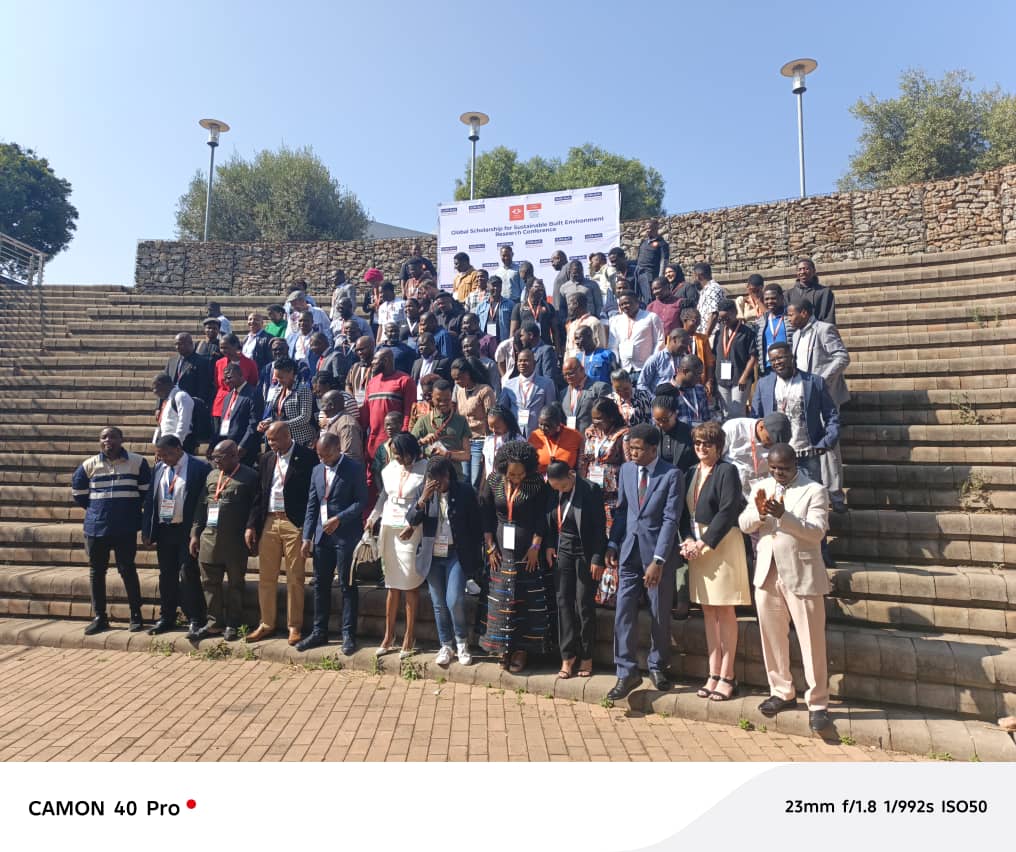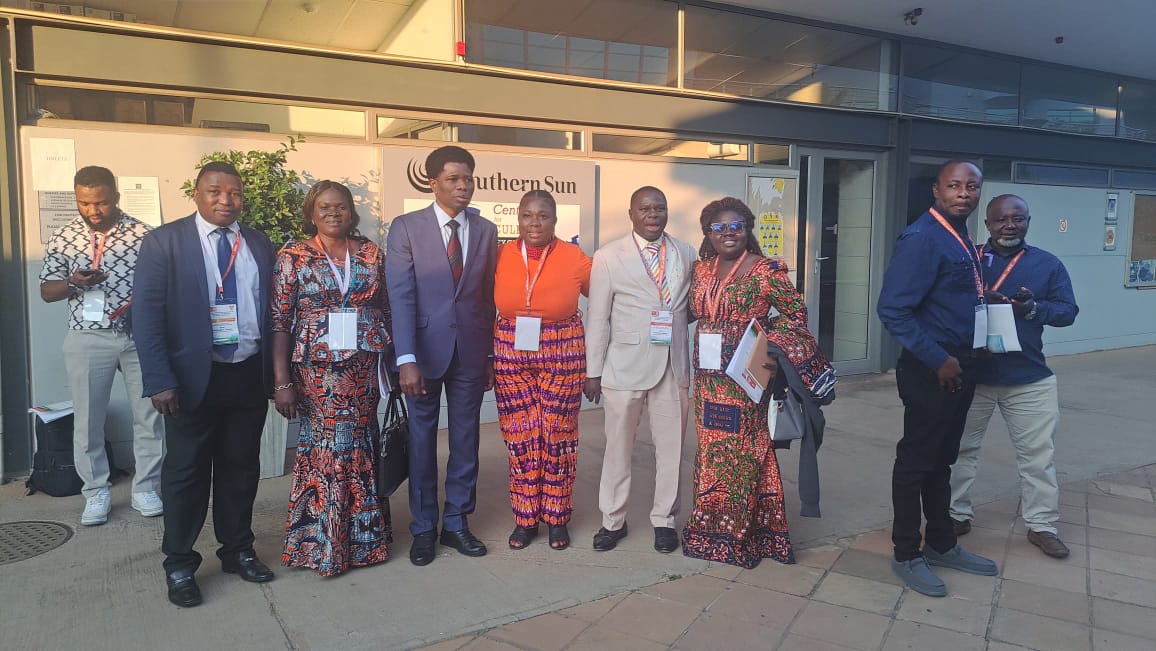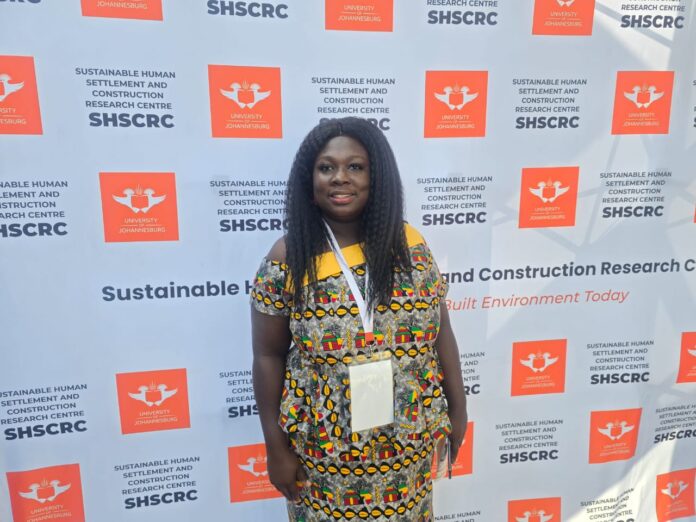At the 1st Global Scholarship for Sustainable Built Environment Research Conference (SURE_BUILT), held from September 4–5, 2025, at the University of Johannesburg, PLn Amb. Gifty Nyarko, African Ambassador for Inclusive Urban Governance and Climate-Resilient Development and National Interim President of the Local Government Service Association of Physical Planners, called for a paradigm shift in how African cities are researched, planned, and built.

Addressing scholars, urban planners, engineers, architects, policymakers, and development partners, Amb. Nyarko urged stakeholders in the built environment to embrace inclusive, African-led, and community-anchored approaches to urban development.
“The question is not whether Africa is urbanizing — but whose knowledge is shaping that urban future, and whose voices are being left behind,” she said.
She noted that while African cities continue to showcase innovation and resilience, they remain disproportionately vulnerable to climate change, inequality, and systemic exclusion. These challenges, she argued, cannot be addressed through fragmented disciplines, elite-driven models, or externally imposed frameworks.

“We cannot build inclusive, climate-resilient cities using fragmented and exclusive approaches,” she stressed. “True inclusion requires us to dismantle hierarchies in knowledge production and shift from research for communities to research with communities.”
Amb. Nyarko challenged engineers, architects, and physical planners to lead the shift toward interdisciplinary, participatory, and context-sensitive practices.
“Engineers and architects must move beyond technical solutions and begin to see communities as co-creators, not clients,” she said. “Your designs and innovations must be grounded in lived experience and community realities — particularly those of informal workers, women, youth, and marginalized groups.”

She further called for a redefinition of professionalism in the built environment so that it is rooted in equity, accessibility, sustainability, and local knowledge.
Highlighting ongoing grassroots efforts, she emphasized that African communities are already innovating through youth-led design studios, participatory housing upgrades, and community mapping projects. She called for such initiatives to be amplified, scaled, and institutionalized through stronger policies, investments, and professional adoption.
“Let this be a turning point,” she urged. “A moment when we commit to building cities that are inclusive by design, resilient by necessity, and sustainable by principle.”
Concluding her address, she presented a collective vision for Africa’s urban future:
“The future is interdisciplinary. The future is collaborative. The future is African. Let us build it — together.”
Source: Christian Ofori Kumah


